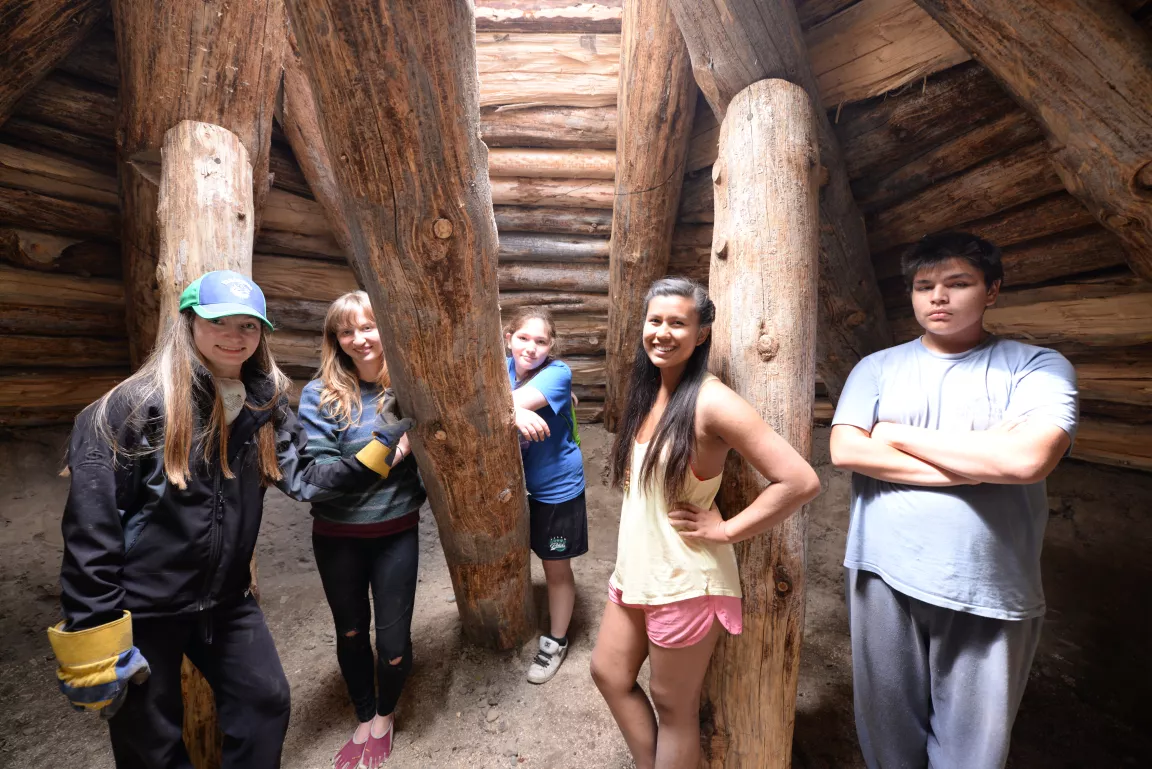Donors Fund Unique Learning Experiences

Prince George, BC - Some UNBC students are getting a hands-on education this summer thanks to donors who helped fund the innovative Undergraduate Experiential Service Learning programs (UESL).
This experiential learning program takes students out of the classroom and into practical, real-life situations working on challenges presented by a community organization, and has a number of goals:
- Promote problem-solving skills.
- Enhance the learners' understanding of the processes of knowledge creation in practical settings with community partners.
- Contribute positively to the development of Northern BC communities, foster personal and social growth, and promote engagement between students and community partners
"UNBC students have long benefitted from the fact that our excellent UNBC faculty members support the high impact practice of experiential learning,” UNBC Vice-Provost, Student Engagement Bill Owen said. “Today, more UNBC students have been provided the opportunity to apply and test their course content in environments outside of the classroom, and in doing so learn new perspectives on their subject matter."
Five courses were awarded funding this year through the UESL. The program is financed through donations to the Area of Greatest Need at UNBC. Donations designated to the Area of Greatest Need allow UNBC to direct the funds to priority areas, including the UESL.
At UNBC’s Prince George campus on the traditional territory of the Lheidli T'enneh, students learned how to build a First Nations pit house - a traditional winter dwelling historically used by many indigenous peoples around the world.
Aboriginal Business Development Centre executive director Vince Prince taught the course and said passing on the skills to his students means the Centre will have people in the community trained to help with future projects.
“It’s a great fit in terms of what we do at the Aboriginal Business Development Centre,” he said. “It helps us develop community capacity in every sense.”
The other four courses covered a diverse range of topics:
- A group of students travelled to Anaham Reserve First Nation in the Chilcotin region to learn and transcribe Tsilhqot’in songs and stories from elders.
- With the 2015 Canada Winter Games set to take place in Prince George this coming winter, tourism management students will have the opportunity to act as liaisons between a province or territory and the Canada Games mission centre.
- Another outdoor recreation and tourism management course will let students learn skills used in providing travel and recreation experiences in natural settings, including rock climbing, dog sledding, hiking, and navigation.
- In the Northwest, biology students will work with the owners of the Cassiar Cannery on the Skeena River and learn about the biodiversity in the estuary as well as the history of development at the site.
Community groups are key to the success of the UESL. The most recent round of courses included partnerships with the 2015 Canada Winter Games Society, Aboriginal Business Development Centre, Tsilhqot’in National Government, OVERhang, and Cassiar Cannery.
“Unrestricted gifts allow UNBC to direct funds to priority areas, such as the UESL pilot program,” UNBC Development Manager Katherine Scouten said. “This gives UNBC the chance to enrich and enhance student learning while also engaging directly with community organizations and businesses.”
-30-